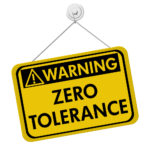Category Archives: Sexual Harassment

Appellate Court Rules That Employee Is Not Required To Quit In Order To Bring A Sexual Harassment Lawsuit
Title VII of the Civil Rights Act of 1964 (Title VII) makes sexual harassment that is sufficiently severe or pervasive to alter the conditions of the victim’s employment and create a hostile working environment an unlawful employment practice. As part of establishing a prima facie case of hostile work environment sexual harassment, a victim… Read More »
Federal Court Rules That Exotic Dancer Is Protected Against Unwelcome Sexual Harassment At Her Workplace
In order to establish a claim of hostile work environment sexual harassment, a victim must demonstrate that the harassment was unwelcome. As explained by the U.S. Supreme Court in Meritor Sav. Bank, FSB v. Vinson, 477 U.S. 57 (1986), that the conduct in question is unwelcome is “the gravamen of any sexual harassment claim.”… Read More »

An Employer’s Bad Faith Investigation Of A Sexual Harassment Complaint: Instructing A Witness To Provide Misleading Information
Title VII of the Civil Rights Act of 1964 (Title VII) protects employees from sexually harassing behavior that is sufficiently severe or pervasive to create a hostile or abusive working environment. Once an employer knows or should know that an employee is being subjected to sexually harassing behavior, a remedial obligation is triggered. The… Read More »

When A Supervisor Makes Employment Decisions Based On A Sexual Harassment Victim’s Submission To Or Rejection Of Sexual Behavior
Title VII of the Civil Rights Act of 1964 (Title VII) makes sexual harassment an unlawful employment practice. In making sexual harassment unlawful, Title VII entitles employees to work free from sexual intimidation or coercion, including quid pro quo sexual harassment. According to the U.S. Equal Employment Opportunity Commission, quid pro quo sexual harassment… Read More »

Court Finds That Employees Are Protected From Retaliation When Complaining About Customer Sexual Harassment
Title VII of the Civil Rights Act of 1964 (Title VII) protects employees from sexual harassment in the workplace. Title VII protects employees from sexual harassment by co-employees, supervisors, managers, owners, clients and customers. Under Title VII, employers are also prohibited from retaliating against employees when they complain about sexual harassment in the workplace…. Read More »

Appellate Court Rules That Employers Are Strictly Liable For Supervisor Sexual Harassment Involving Unfulfilled Threats Or Promises
Title VII of the Civil Rights Act of 1964 (Title VII) prohibits employers from discriminating employees on the basis of sex. Sexual harassment is a form of sex discrimination prohibited by Title VII. Having long represented victims of sexual harassment, our Central Florida sexual harassment attorneys have learned that quid pro quo is perhaps… Read More »

Court Finds Victim’s Verbal Sexual Harassment Complaint Satisfies Company Policy Requiring The Filing Of A Sexual Harassment Complaint
Under Title VII of the Civil Rights Act of 1964 (Title VII), employers are liable for sexual harassment which is sufficiently severe or pervasive to create a hostile work environment. As explained by the U.S. Eleventh Circuit Court of Appeals in Dees v. Johnson Controls World Services, Inc., 163 F.3d 417 (11th Cir. 1999),… Read More »

Employers Must Publicize & Train Employees On Their Sexual Harassment Policy
Title VII of the Civil Rights Act of 1964 makes sexual harassment in the workplace unlawful. In order to eradiate sexual harassment in the workplace, as the U.S. Supreme Court in Burlington Indus., Inc. v. Ellerth, 524 U.S. 742 (1998) determined, “Title VII is designed to encourage the creation of anti-harassment policies and effective… Read More »

Appellate Court Rejects Employer’s Attempt To Portray Same-Sex Sexual Harassment As Mere Horseplay
Title VII of the Civil Rights Act of 1964 (Title VII) protects employees from sexual harassing behavior in the workplace which is sufficiently severe or pervasive to create a hostile work environment. Unlawful sexual harassment under Title VII is not limited to harassment from members of the opposite sex. Instead, Title VII also makes… Read More »

Both Men And Women Are Protected From Sexual Harassment At Work
Title VII of the Civil Rights Act of 1964 (Title VII) makes sexual harassment which is sufficiently severe or pervasive to alter the terms and conditions of the victim’s employment and create a hostile work environment unlawful. Having litigated sexual harassment cases for more than 15 years, our Central Florida sexual harassment attorneys have… Read More »


 Close Menu
Close Menu